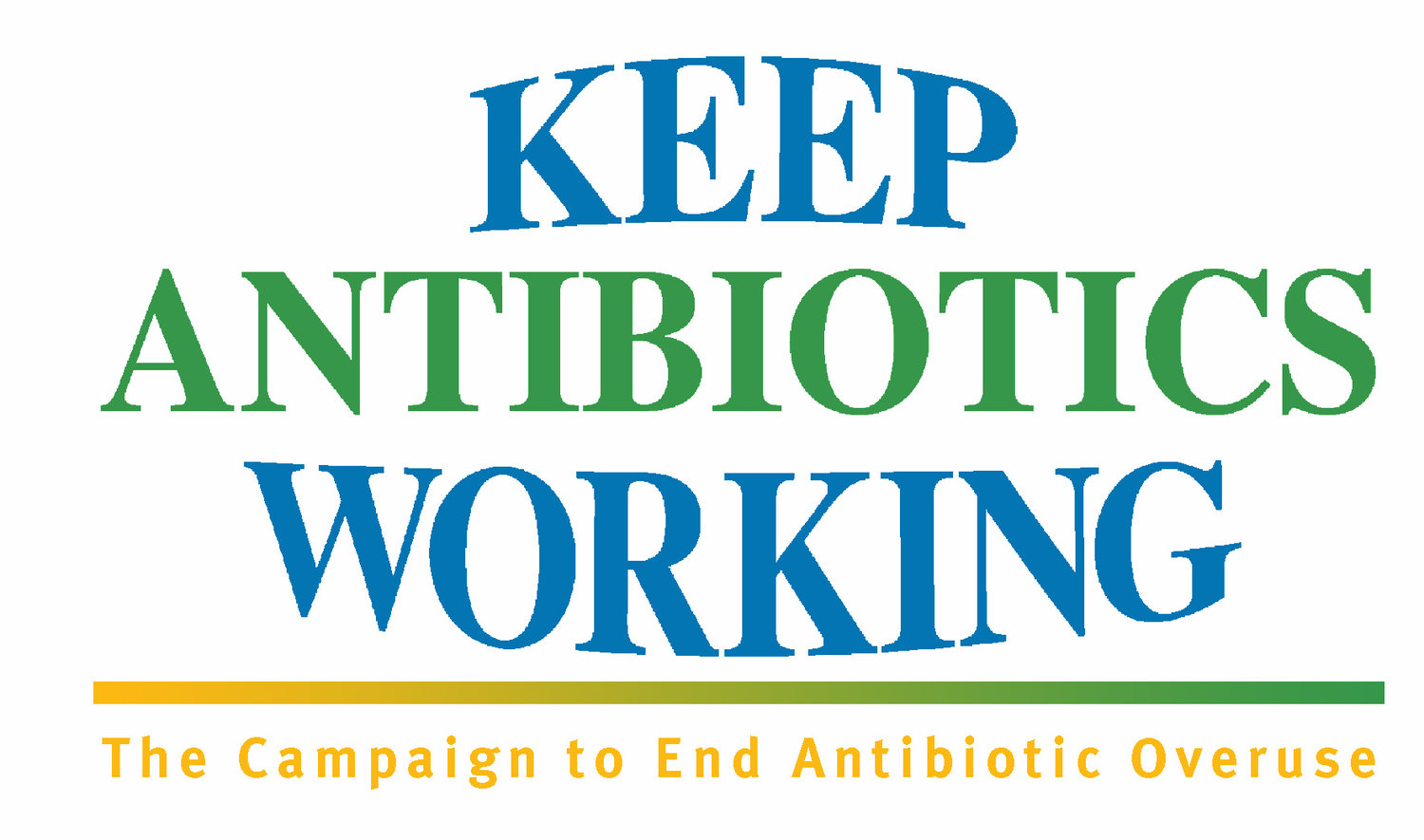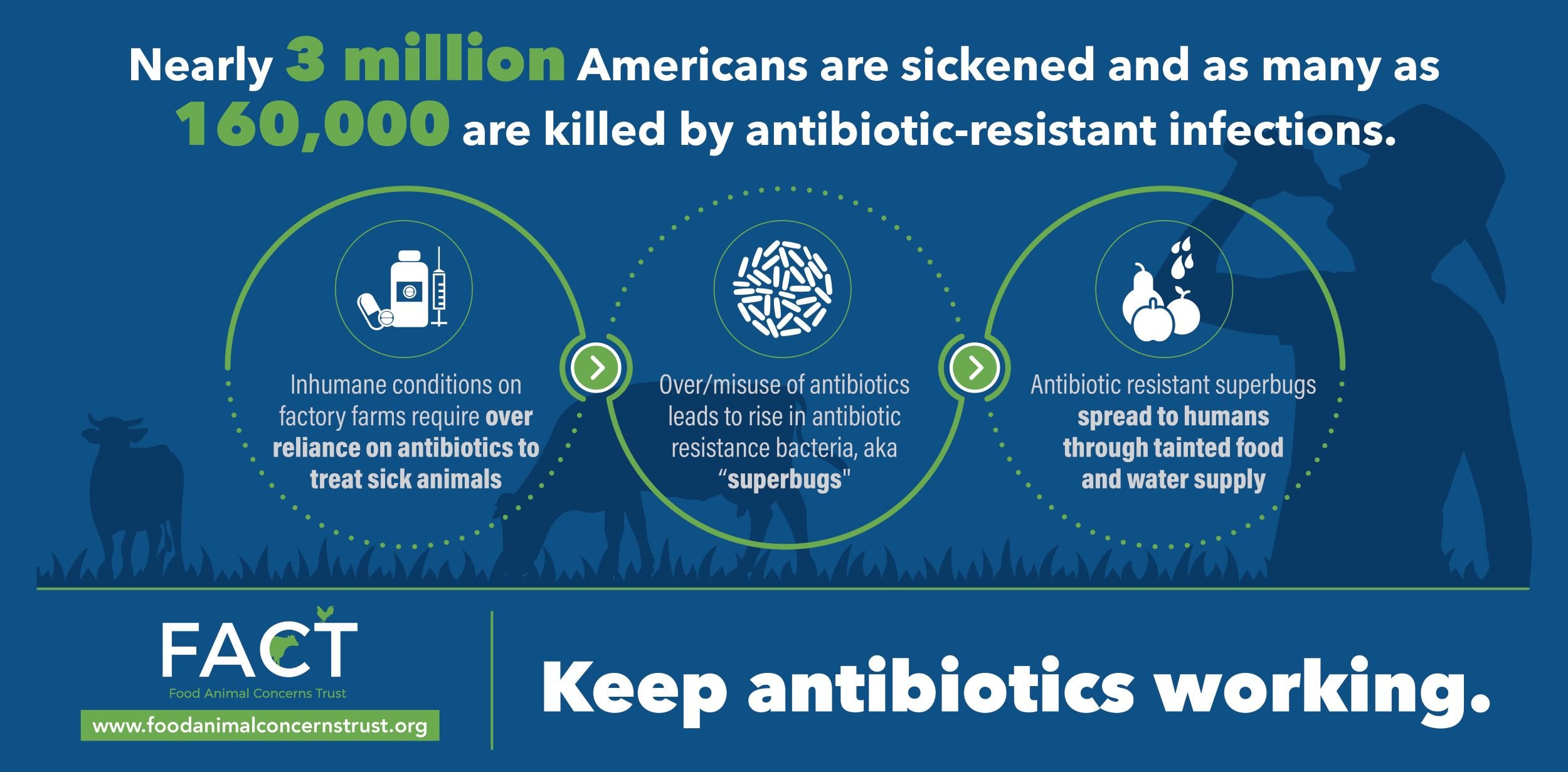STEVE ROACH, SAFE & HEALTHY FOOD PROGRAM DIRECTOR, FOOD ANIMAL CONCERNS TRUST
A dangerous practice has become commonplace in industrial animal production – the routine misuse of antibiotics to prevent ailments that result from the crowded, dirty conditions in which animals are raised. This overuse is not only unnecessary with the humane treatment of farm animals, but harmful to human health. That is why Food Animal Concerns Trust (FACT) and the Keep Antibiotics Working (KAW) coalition is calling for a 50% reduction in the use of antibiotics in food animals by 2025.
Antibiotics are necessary and widely used medical tools in fighting bacterial infections both in people and animals. Without the proper and timely use of antibiotics, an infection in even the smallest of cuts can be deadly. There is no question that antibiotics should be used when needed. The issue arises when these life-saving medicines are misused, particularly by large-scale factory farms and feedlots who choose profit over safety.
For example, most beef cattle are raised in giant feedlots where they are routinely subjected to inhumane practices that cause a multitude of health problems. They are prematurely separated from their mothers; fed grain-based diets that their digestive systems are not equipped to handle; and packed into crowded dirty pens. Stress from being separated from the mother cows and being placed in manure-filled and disease-ridden pens puts them at high risk of respiratory disease. Feeding them grains—when their bodies were designed to eat grass— causes health problems such as liver abscesses.
All of these avoidable health issues are wrongly addressed in advance with shots of long-lasting high-powered antibiotics and high doses of tetracycline antibiotics in animal feed when cattle arrive at the feedlot, followed by daily doses of the critically important antibiotic tylosin to keep liver abscesses at “acceptable” levels until they are finally sent off to slaughter.
This is not the way antibiotics are meant to be used. Misusing and overusing these life-saving medicines is causing bacteria to develop resistance to antibiotics that once were effective against them. The result is “superbugs” that can no longer be treated except with the newest and most potent antibiotics leading to more illness, hospitalization, and death as doctors struggle to find antibiotics that works. Now, globally, superbugs are spreading that cannot be treated even with the newest antibiotics so that for some infections there are no effective treatments at all.
This is an immediate threat to the health of all of us. Very quickly, superbugs pass from animals to farm workers and their families. They contaminate the meat of the food animals, which we then buy from the grocery store and ingest. They enter the environment when waste from animals is spread, blown by wind, or washed into rivers and lakes by rain. Once in the environment, superbugs can cause illness in anyone who comes into contact with the water or who eats produce irrigated with that water. Once someone is infected, the superbugs can pass from person to person. This isn’t a future scenario. It is playing out over and over again all over the world, with people of every age and background paying the ultimate price.
The sad truth is that profits drive this dangerous scenario. While the giant feedlots see this antibiotic overuse as normal, other farmers across the country humanely raise cattle on pastures, eating their natural diet of grass. Calves who are kept with their mothers while they slowly transition to grazing from milk are healthier and rarely need antibiotics.
We must demand that food animals be raised in an environment that promotes their health and ours. We believe a 50% reduction in antibiotic use in farming by 2025, from where it was in 2010 is not only reasonable, but responsible. Transitioning to more humane ways of farming will protect from superbugs and save the lives that those superbugs would take.
Learn more about how antibiotic misuse on farms are leading to deadly superbugs in our video.

